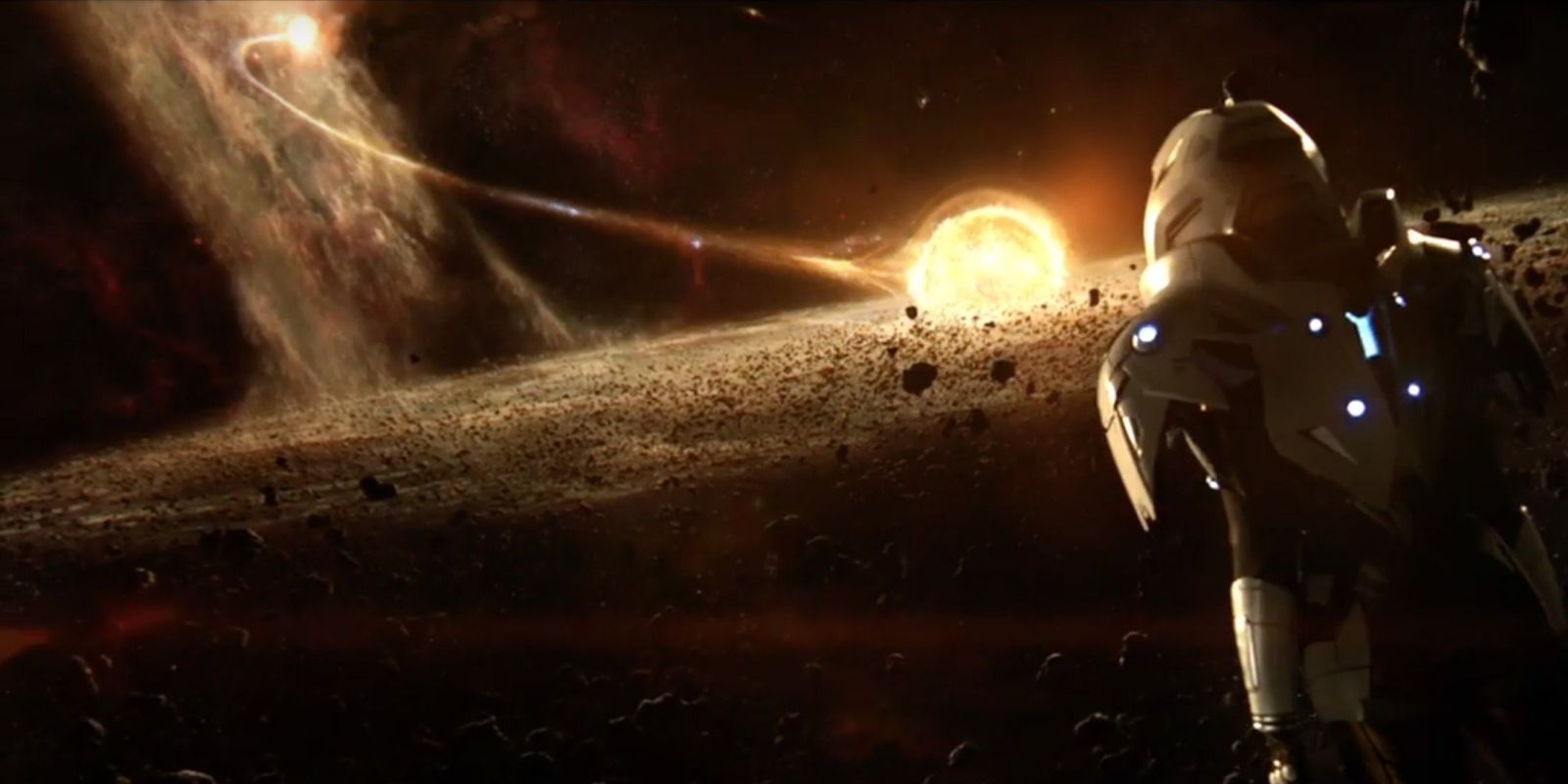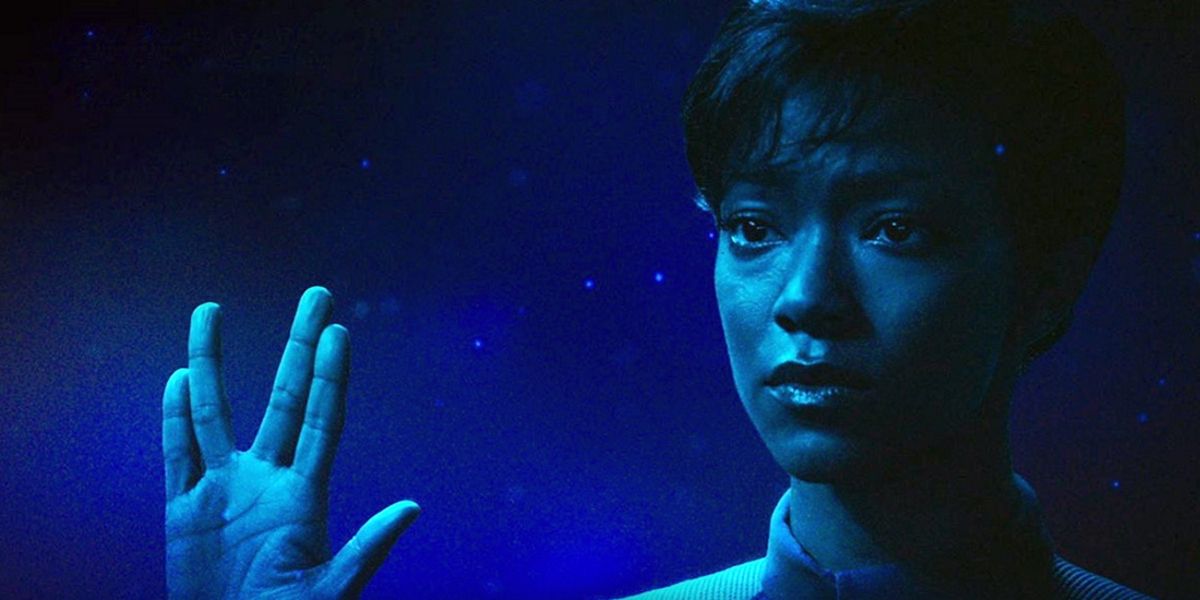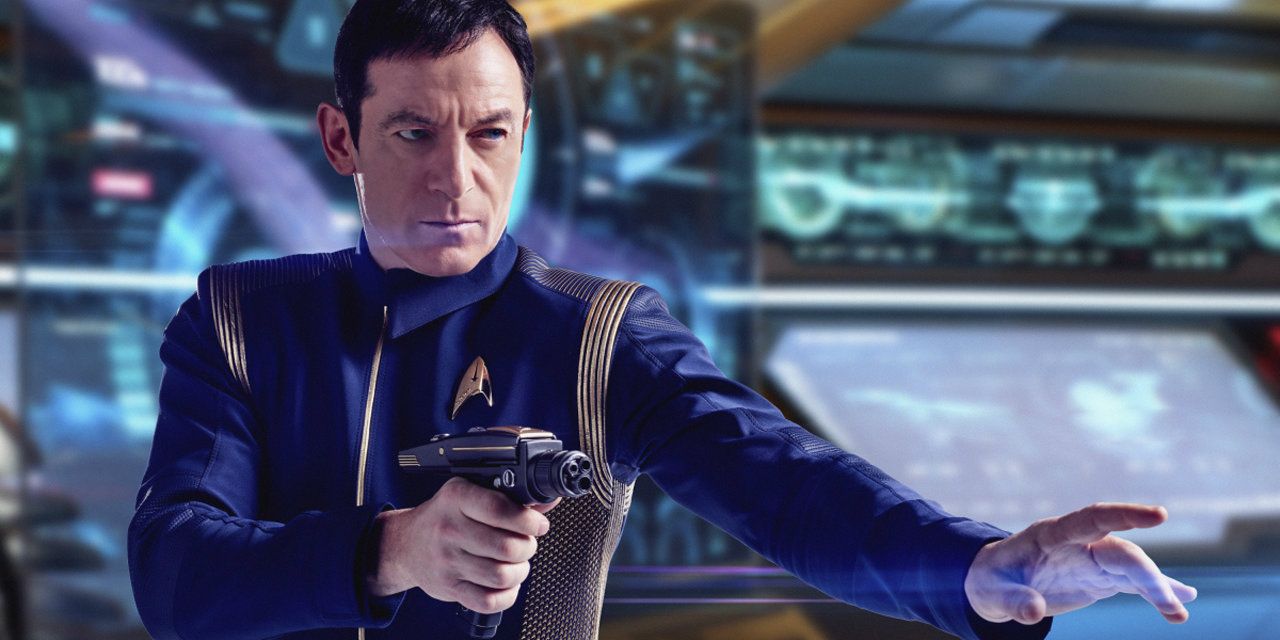Star Trek: Discovery is the first new Star Trek series since Star Trek: Enterprise ended in 2005. While that is cause for celebration, or at the very least curiosity, many Star Trek fans are wary of the producers' decision not to set this new series as a continuation of the 24th century. Star Trek: Nemesis in 2002, the very last Star Trek: The Next Generation feature film, effectively concluded the progression of the franchise in that time. Since then, the brief interlude involving Spock (Leonard Nimoy) that helped create the alternate Kelvin timeline of the J.J. Abrams Star Trek films, was the only glimpse for fans of any events in the Alpha Quadrant after Nemesis. Trekkers hoping to learn more about what happens after the days of Captains Picard (Patrick Stewart), Sisko (Avery Brooks), and Janeway (Kate Mulgrew) are out of luck. Instead, Discovery takes us back to the past (at least of Star Trek).
The new series is another prequel series set in the 23rd century. It is set approximately 100 years after the events of Star Trek: Enterprise; the series finale of which was a glimpse (via holodeck simulation) into how Captain Jonathan Archer (Scott Bakula) helped found the United Federation of Planets. Discovery is also set approximately 10 years before the events of The Original Series, which was the five-year mission of the Starship Enterprise captained by James T. Kirk (William Shatner). However, Discovery's producers have insisted from the get-go that Discovery takes place in the Prime timeline of Trek, the same continuity in which The Original Series, The Next Generation, Deep Space Nine, Voyager, and Enterprise before them, as well as all of the movies not produced by J.J. Abrams.
Related: What Star Trek: Discovery’s Episode Titles Reveal
Being set a decade before The Original Series, this places Discovery approximately around the year 2250. During this time period, the U.S.S. Enterprise is already on active duty, likely under the command of Captain Christopher Pike (Jeffrey Hunter). Spock was also serving on board the Enterprise during this time period, which is when the original pilot of The Original Series ('The Cage', which was later adapted into the two part episode 'The Menagerie') took place. This could mean that the Enterprise and some of its crew could possibly appear (or at least are referenced) in Discovery at some point during the first 15-episode season.
The other major link to the Original Series is Ambassador Sarek of Vulcan (James Frain), the father of Spock. In Discovery, we learn Sarek had adopted Discovery's lead character Michael Burnham (Sonequa Martin-Green) and raised her as his ward on Vulcan. Whether she was raised alongside Spock or not is something Discovery will hopefully address, as Spock has never mentioned having a human female as part of his family's household. It's far less likely Discovery will reference Sybok (Lawrence Luckinbill), Spock's half-brother from Star Trek V: The Final Frontier.
By Discovery's time period, the United Federation of Planets and Starfleet have been in existence for roughly 100 years. The wars against the Romulans and the Xindi seen in Star Trek: Enterprise are now generations in the past. The Federation has become a galactic superpower that has been recruiting dozens of member worlds throughout the Alpha Quadrant, though the main players in the Federation's hierarchy are the four founding worlds that made up the original coalition: Earth, the Andorians, the Tellarites, and the Vulcans. Starfleet, based in San Francisco on Earth, has also become a much larger fleet of exploratory vessels with a mission statement "to seek out new life and new civilizations, and to boldly go were no one has gone before."
The Klingons are expected to be Starfleet's main adversaries in Discovery, and the series aims to depict and explore the Klingons in ways Star Trek hasn't before. At this point in the history of the galaxy, the Klingons are in a state of internal schism and isolationism. Star Trek: Enterprise introduced the 'augment virus,' which attempted to explain why Klingons looked more like humans in The Original Series than they did in the later incarnations of Star Trek. This may be the explanation used for why Discovery's Klingons look different from either of those versions we've already seen.
In Discovery, we will learn that the Klingons are divided into two dozen Great Houses, perhaps not unlike a Klingon version of Westeros in Game of Thrones. One of Discovery's primary Klingon characters is T'Kuvma (Chris Obi), a powerful Klingon leader who wants to unite the Klingon Empire. Another major Klingon character is Kol (Kenneth Mitchell), described in StarTrek.com as "an alpha Klingon" from the House of Kor. Much of Star Trek: Discovery will reportedly be told from the Klingons' point of view and will delve into their society and politics.
As for the other major species in Star Trek known to be active during this time period, chiefly the Romulan Star Empire, it remains to be seen if Discovery's journey will place Starfleet in conflict with them. The Romulans have been isolated in their own sector of space beyond the Neutral Zone for several decades; the Federation doesn't encounter the Romulans until The Original Series episode 'Balance of Terror'. However, Discovery seems poised to take some departures from what's established canon, taking Star Trek fans in some bold -- and possibly controversial -- new directions.



